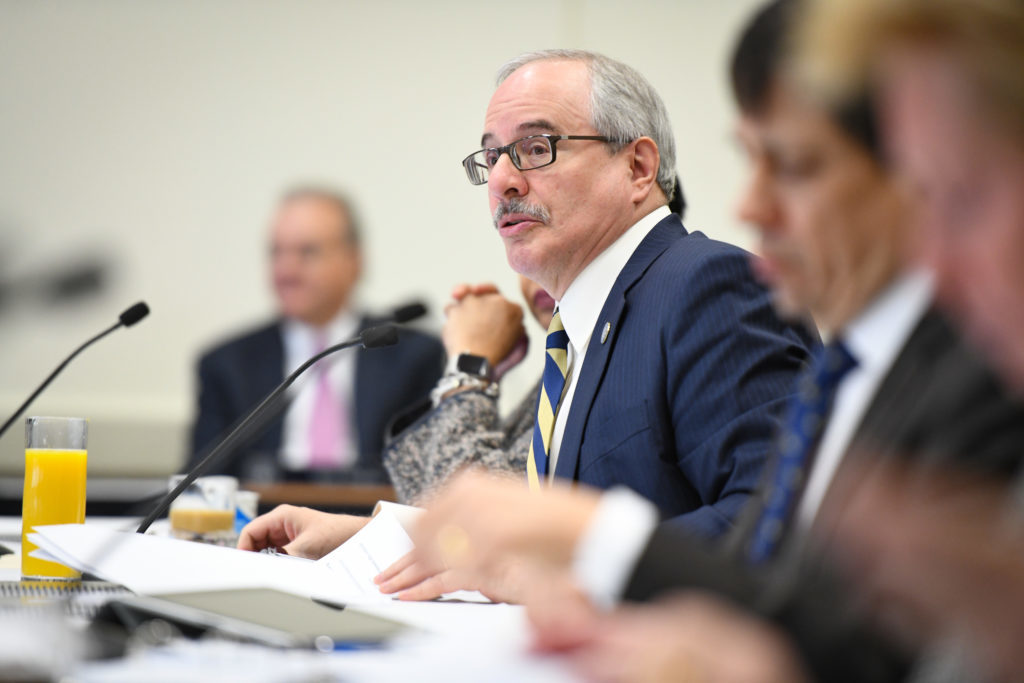After a student-led push to combat food insecurity on campus, the Board of Trustees unanimously approved an increase to student dining plans Friday.
The change, which will go into effect next academic year, boosts student dining plans to $2,800 for students living in residence halls with kitchens in their room and $4,600 for students without kitchens. The move comes after concerns from students who said the existing meal plan did not provide enough funding to afford the high cost of eating in the District.
Currently, the amount a student receives on their dining plan is dictated by academic year – freshmen are allotted $4,100, sophomores receive $2,700, juniors have $2,200 and seniors receive $1,200. Only students who live on campus are required to sign up for a dining plan.
University President Thomas LeBlanc said at the Board’s meeting that the changes will “address concerns that have been raised among the student body about eating on campus.” When LeBlanc arrived on campus in August, he highlighted dining affordability as a main priority heading into his tenure.
Last year, officials added $200 to all dining plans amid similar affordability concerns.
The dining increase will contribute to a 3.9 percent increase in the cost of attendance next academic year. Tuition, which will remain fixed for the incoming freshman class, will increase 3.2 percent next academic year to more than $55,000.
Provost Forrest Maltzman said in an interview that the increase will be accompanied by a surge in the University’s financial aid budget this spring so students who receive financial assistance to cover the costs of their housing packages won’t have to dole out extra cash.
“I think making sure students have enough resources for food, making sure that the plan makes sense and being transparent about what it costs to eat in the Foggy Bottom area is the right thing to do,” he said.
The increase follows a series of calls from the student body to make dining more affordable on campus. One year after the University closed the doors of Foggy Bottom’s only dining hall and switched to an “open” dining plan, students said running out of dining cash was still the norm.
On Monday, the Student Association Senate unanimously approved a resolution calling on the University to increase the amount of dining dollars afforded to students and to re-evaluate its meal deal programs. The resolution came after a report from three Food Institute fellows found the dining plan is “setting students up to fail,” and that GW’s own resources to help students stay within budget promote unhealthy and unsafe diets.
In 2016, the University opened a food pantry – coined “The Store” – in response to concerns about food insecurity on campus. This year, more than 600 students have signed up to access The Store, leaders of the pantry said.
In a reformed agenda this semester, the SA’s top two leaders also called for changes to the dining program as the body recognizes food insecurity as a “serious and chronic problem” on campus.
SA President Peak Sen Chua said he has emphasized the issue of food insecurity to administrators in meetings over the course of his term in office.
“With the increase in dining plans and having it tied to housing and the University increasing its financial aid budget as it relates to funding the dining plans, we are confident this is a good first step in order to ensure that students that need food the most are adequately covered and supported by the University,” he said in an interview.





